Submitted by WA Contents
Archstudio creates continuous movement in the renovation of traditional Chinese courtyard house
China Architecture News - Jul 04, 2017 - 13:59 38146 views
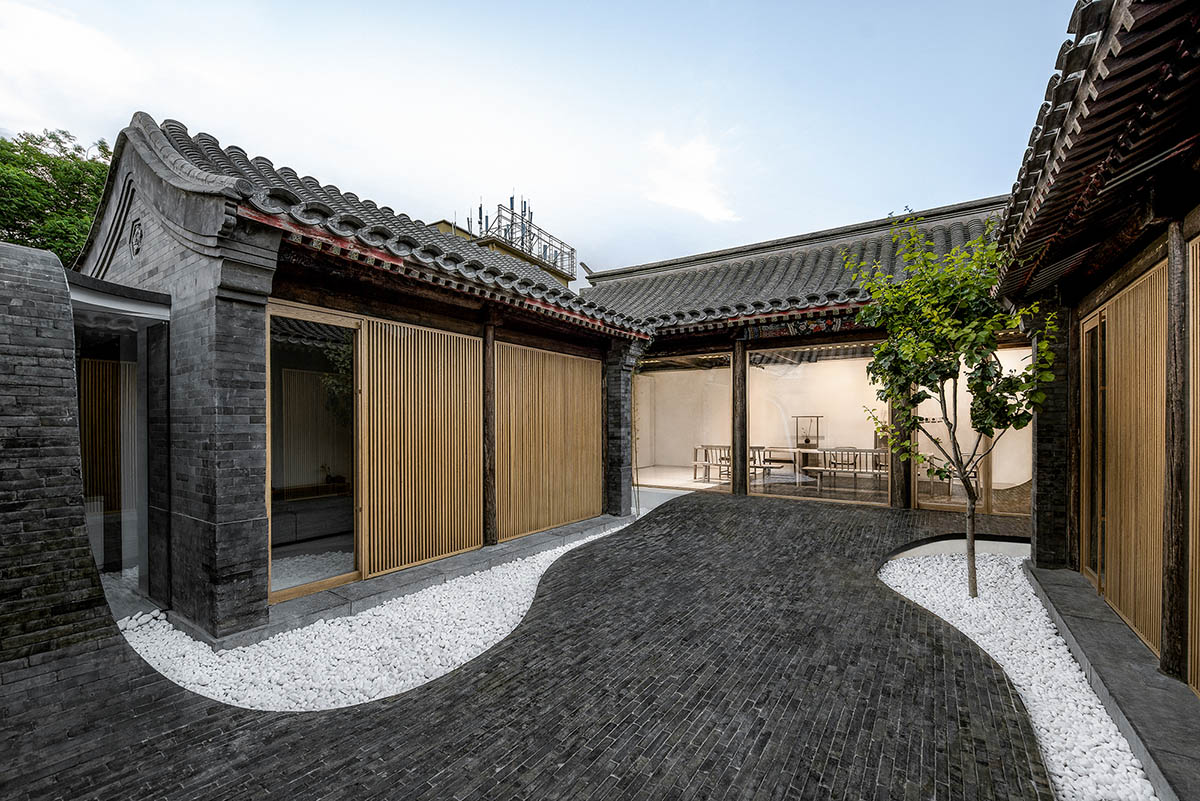
Beijing-based architecture firm Archstudio has renovated a traditional Chinese courtyard house by using an undulated floor with grey-brick pavement to create a continuous movement from inside to outside - or total opposite.
Located in Paizihutong, Dashilar Area, Beijing, the main goal of the project is to renovate this traditional courtyard with a modern look and necessary infrastructural elements, which will mainly serve as a residence, be transformed into an attractive public space of Beijing Inner City.
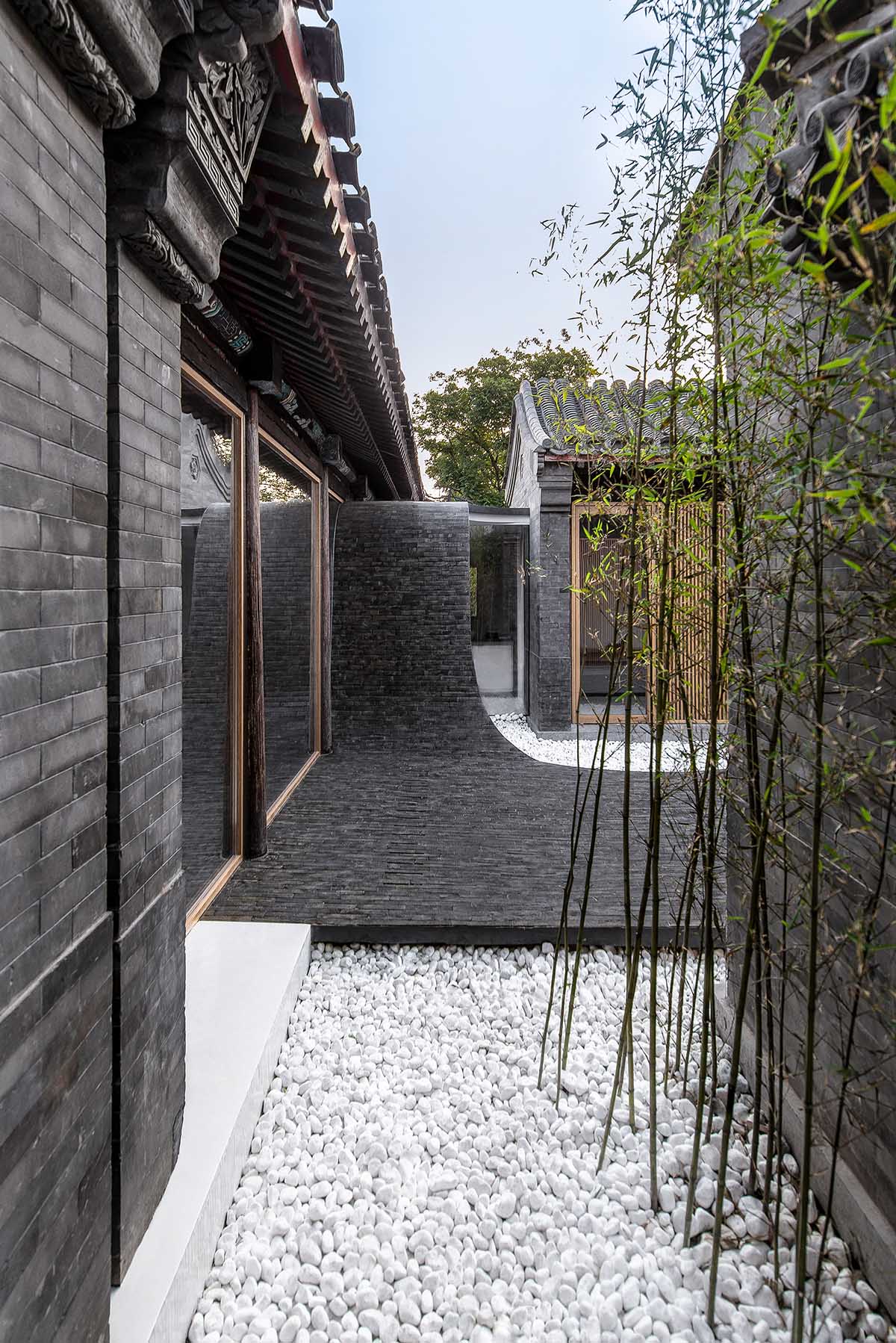
Entrance turning point
Belonging to a property of Siheyuan with one single entry, the studio plays with the existing regular layout by creating "a twisting courtyard", getting rid of the solemn and stereotyped impression given by Siheyuan, and creating an open and active living atmosphere.
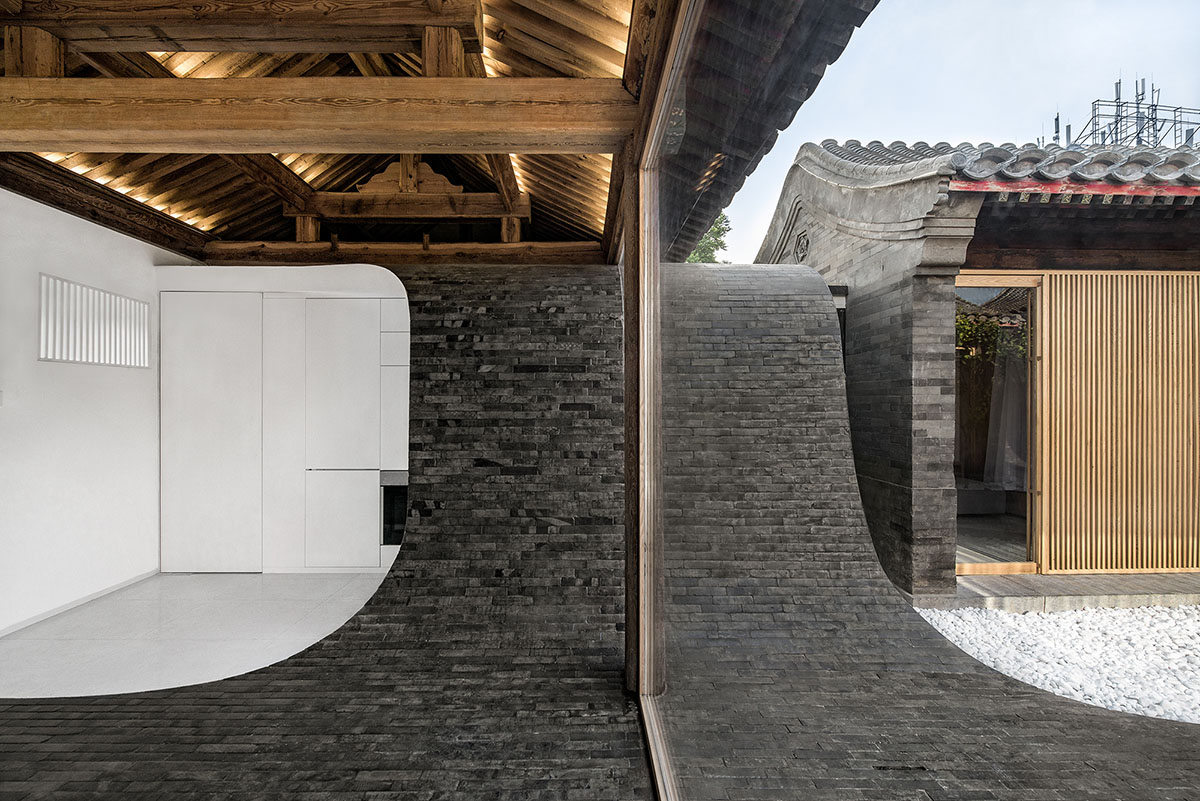
Dining room
An undulated floor - made of grey-brick pavement and white pebbles - connects inside and outside, twisting into walls and roof, thus creates a dynamic connection between inside and outside space.
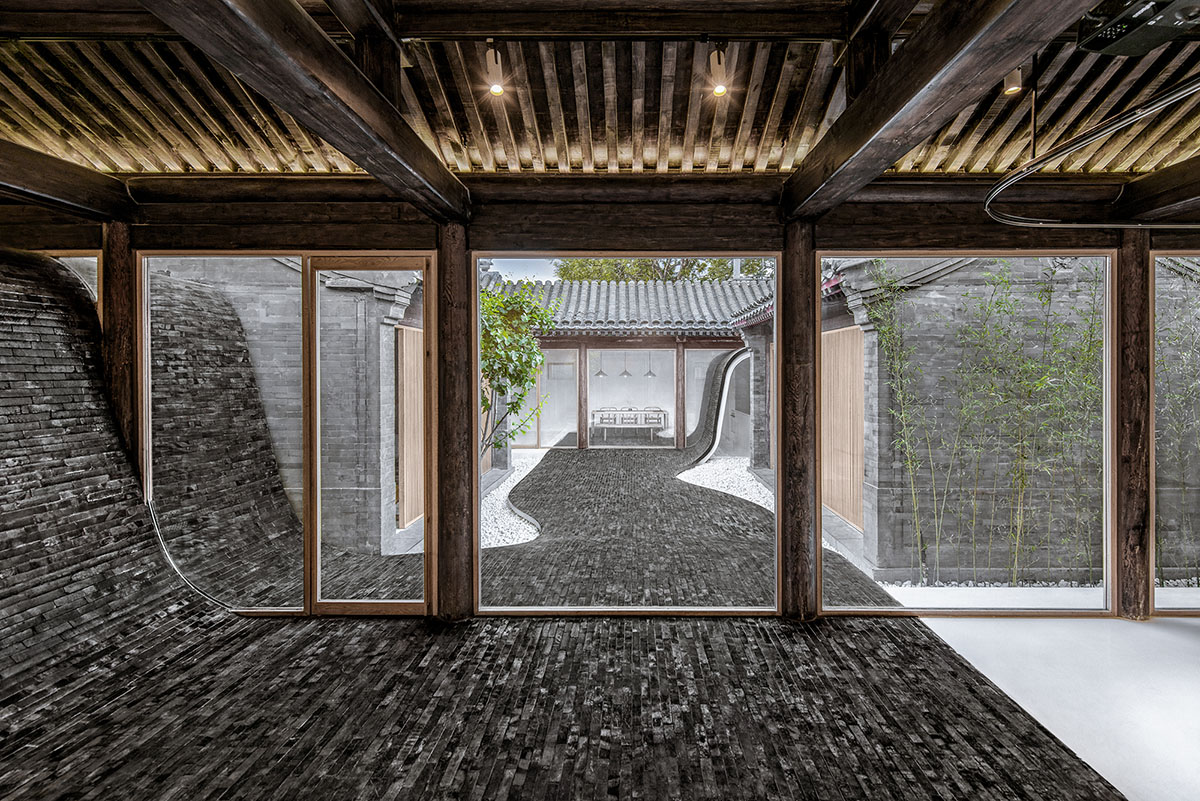
Reception area
The studio embeds auxiliary spaces such as kitchen, toilet and warehouse within the curved walls, while reception and dinning spaces are shown outside the curved wall and connect to the courtyard as a whole. Both indoor and outdoor floors are paved with gray brick. A hawthorn tree in the courtyard is kept and being part of the twisting landscape.
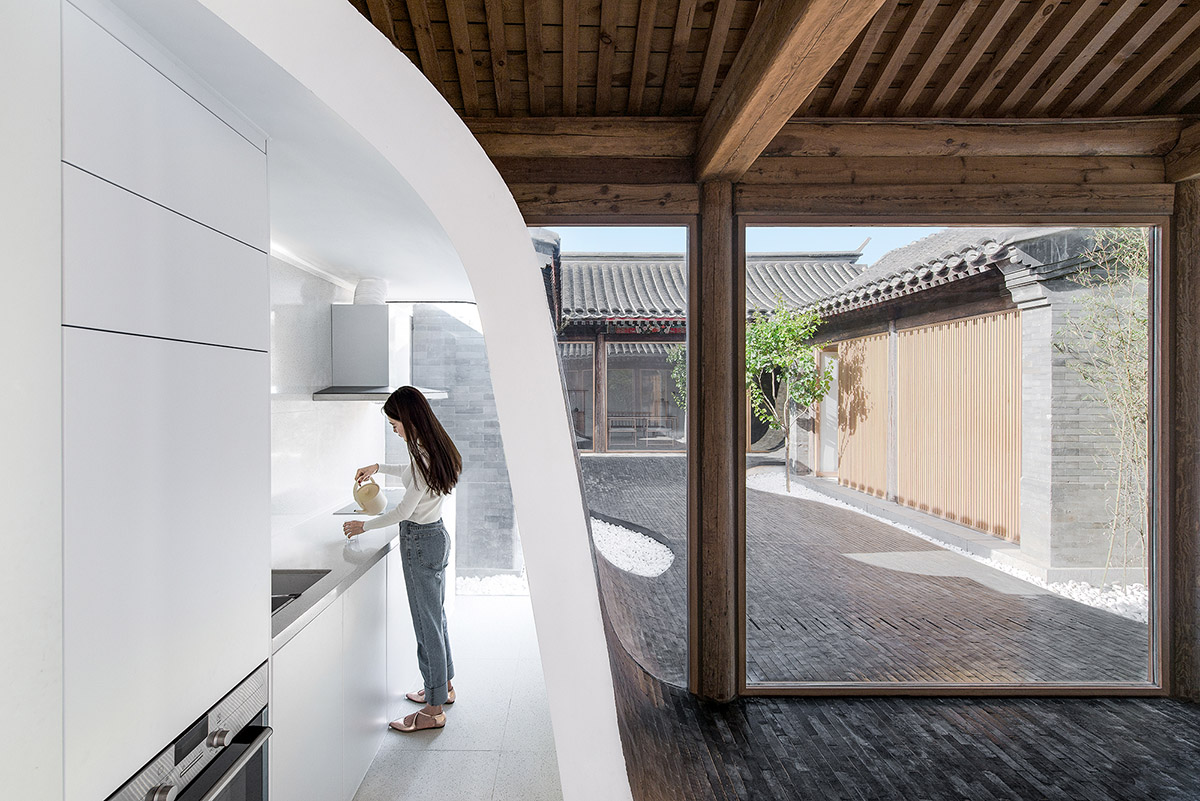
Kitchen
"The small yard is mainly used as urban public space while maintaining the possibility of using as a residence. The four houses can be rented for public events for purposes such as recreation, meeting and gathering. Meanwhile, they could be served as a family hostel with three bedrooms. Integrated furniture is used to enable the flexible switch of space scenes," said Archstudio.
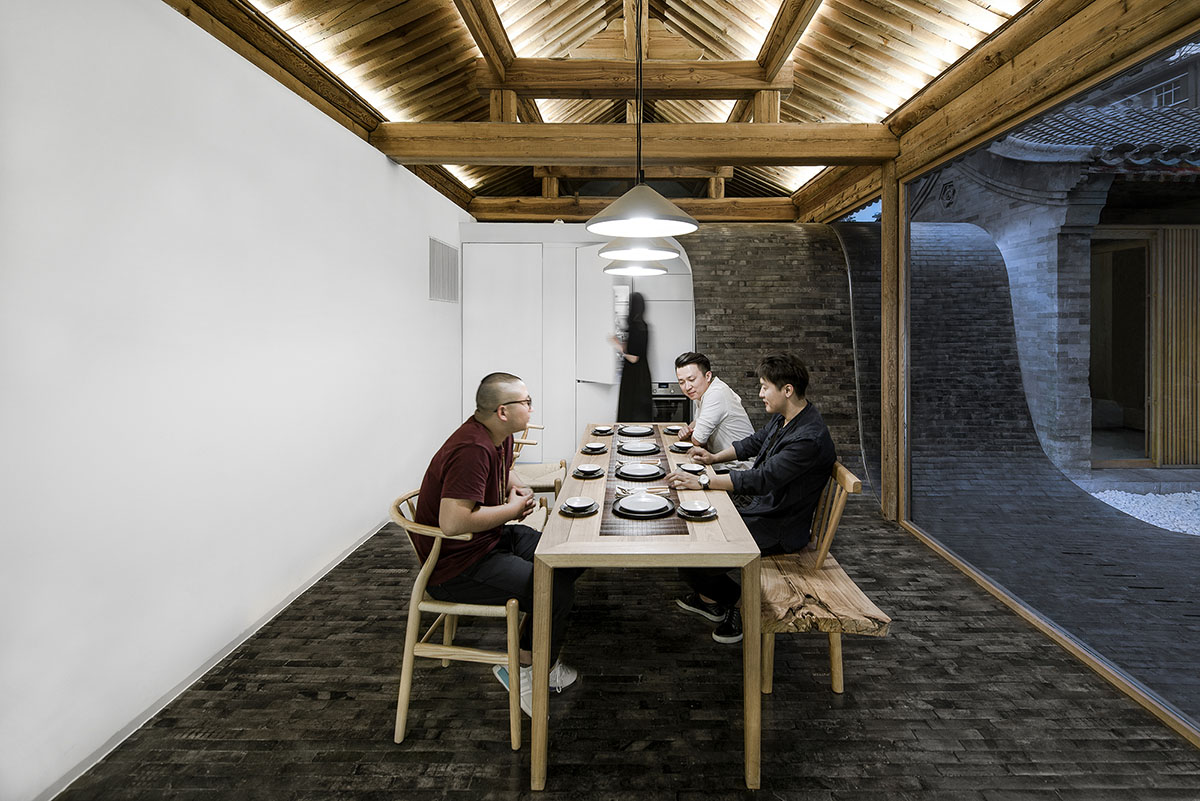
Dining room
Furniture boxes are inserted into the existing wood frames of east and west wings. Wood platform with lifting table hidden inside could be used as tearoom or bedroom. Bed wall and partitive soft curtain are also used in the main room on the north to meet multiple use requirements.
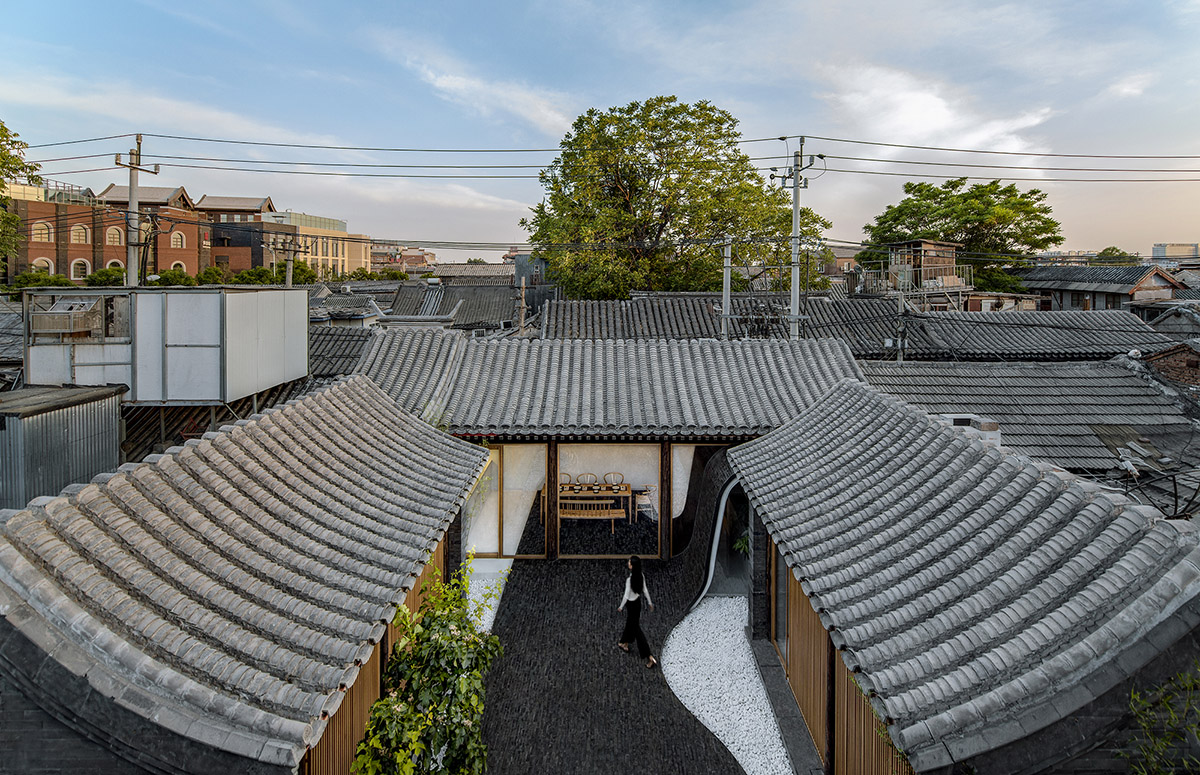
Courtyard - bird's eye view
"For building type "Siheyuan", the courtyard is the core of living fun. "Twisting courtyard" makes micro-adjustment to relations between the parts to change the temperament of the courtyard space and to meet requirements of multiple use without changing the existing housing structure, making the traditional courtyard up-to-date and being integrated into modern urban life," added the studio.
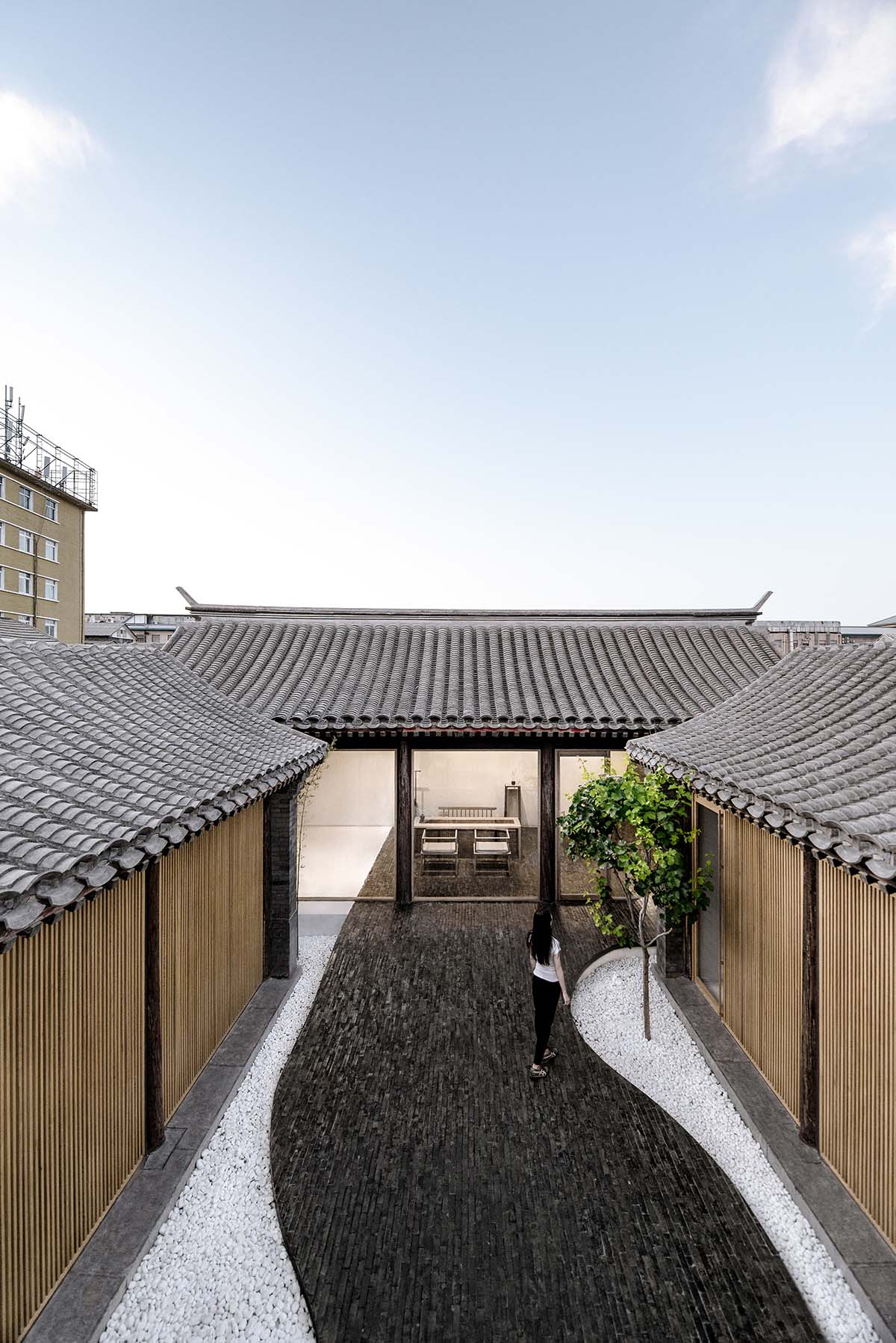
Courtyard - bird's eye view
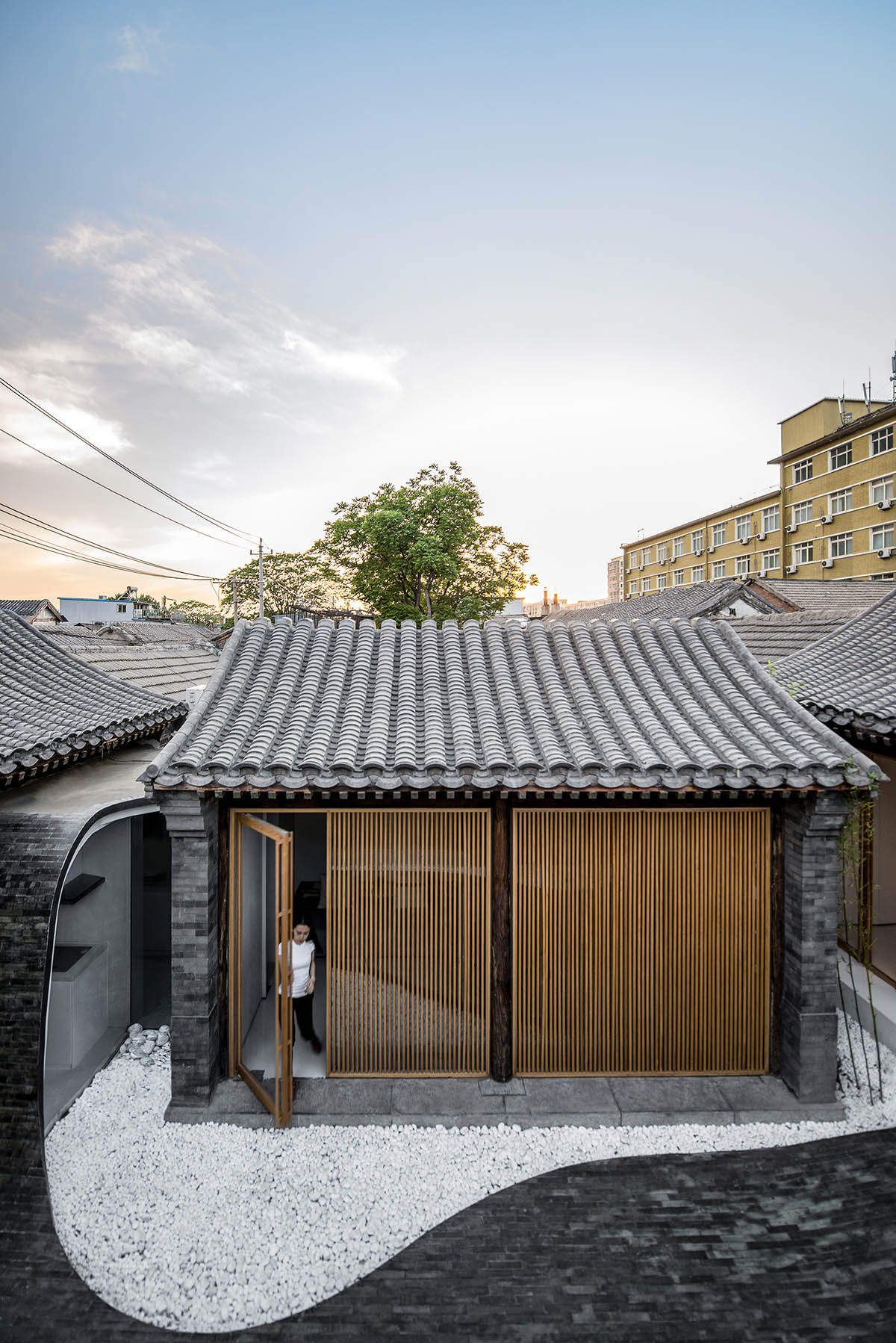
Courtyard - bird's eye view
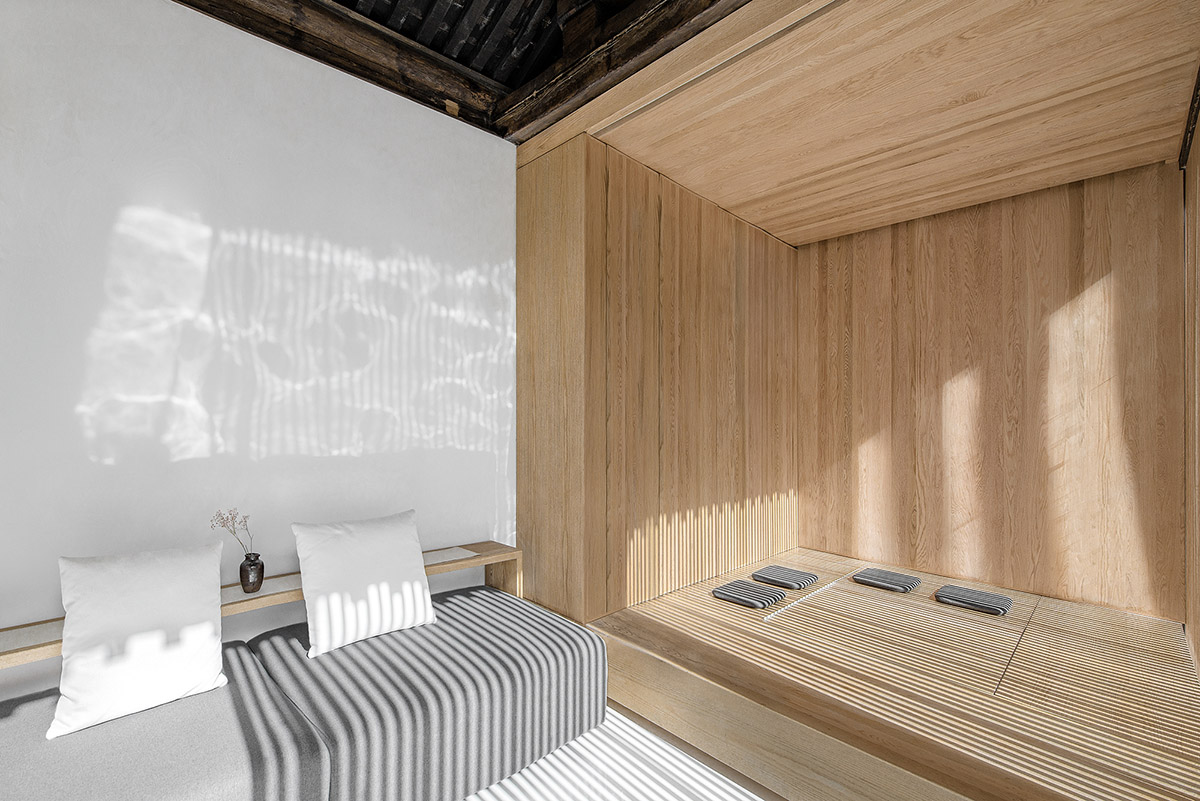
Wing room
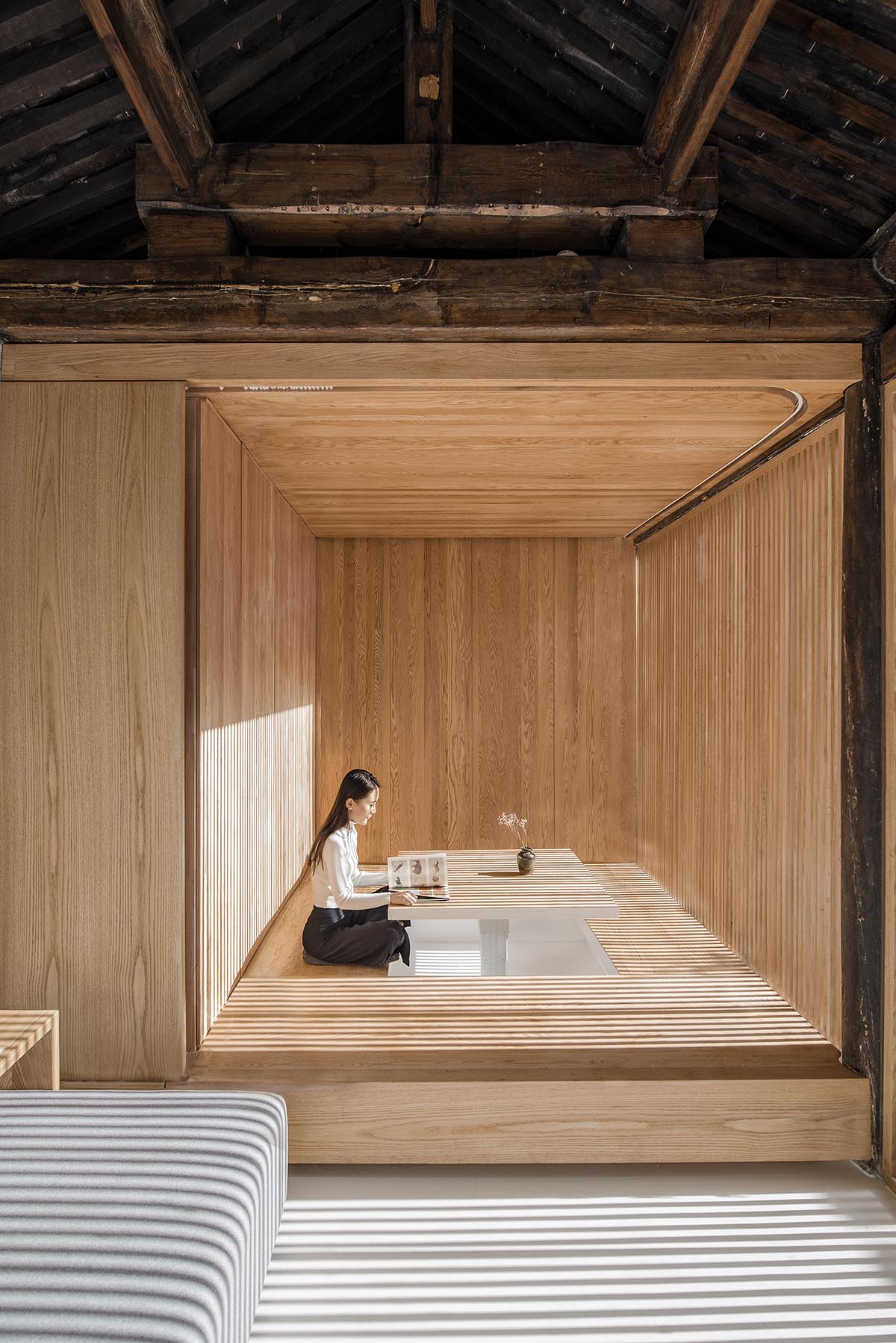
Wing room (bedroom mode)
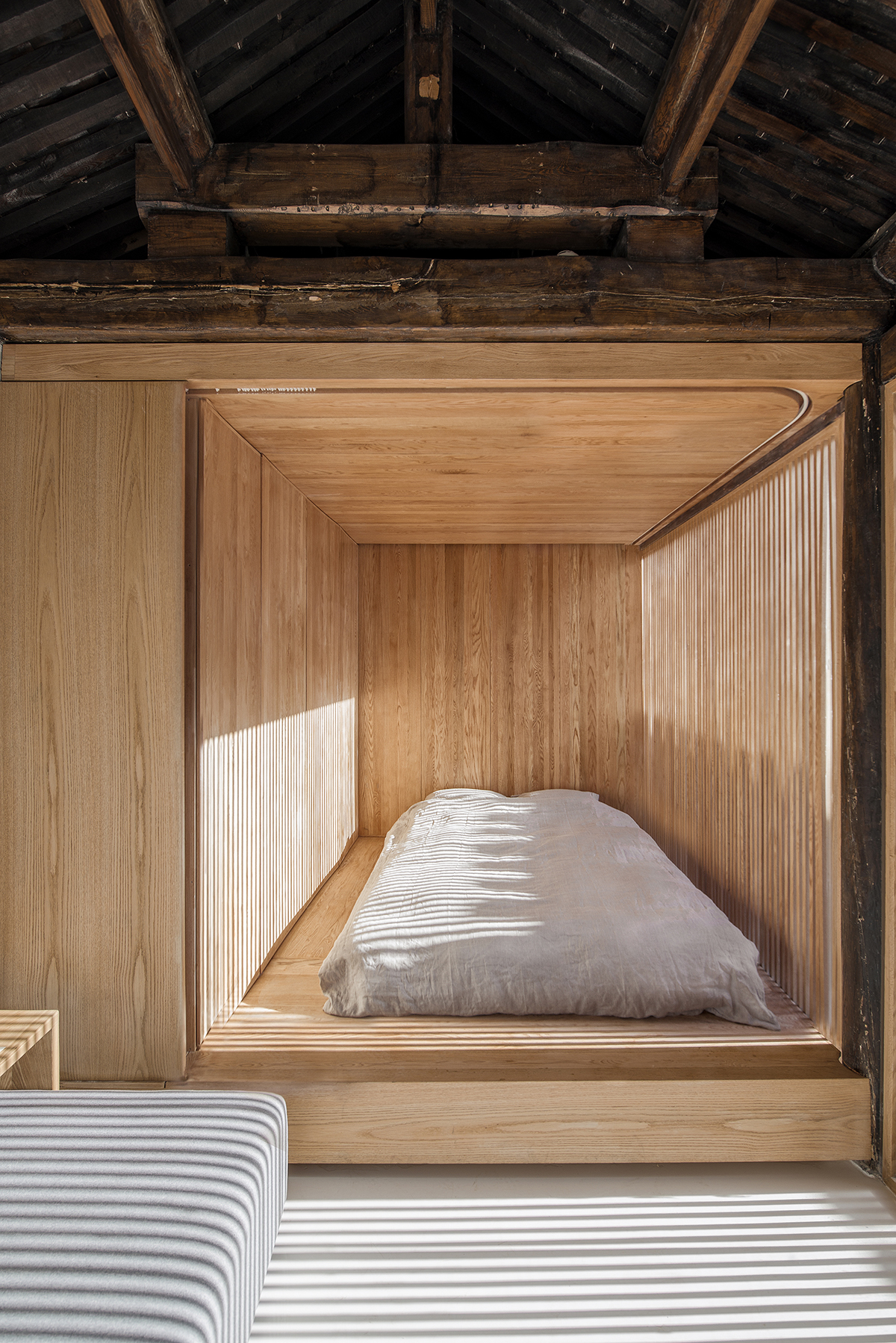
Wing room (bedroom mode)
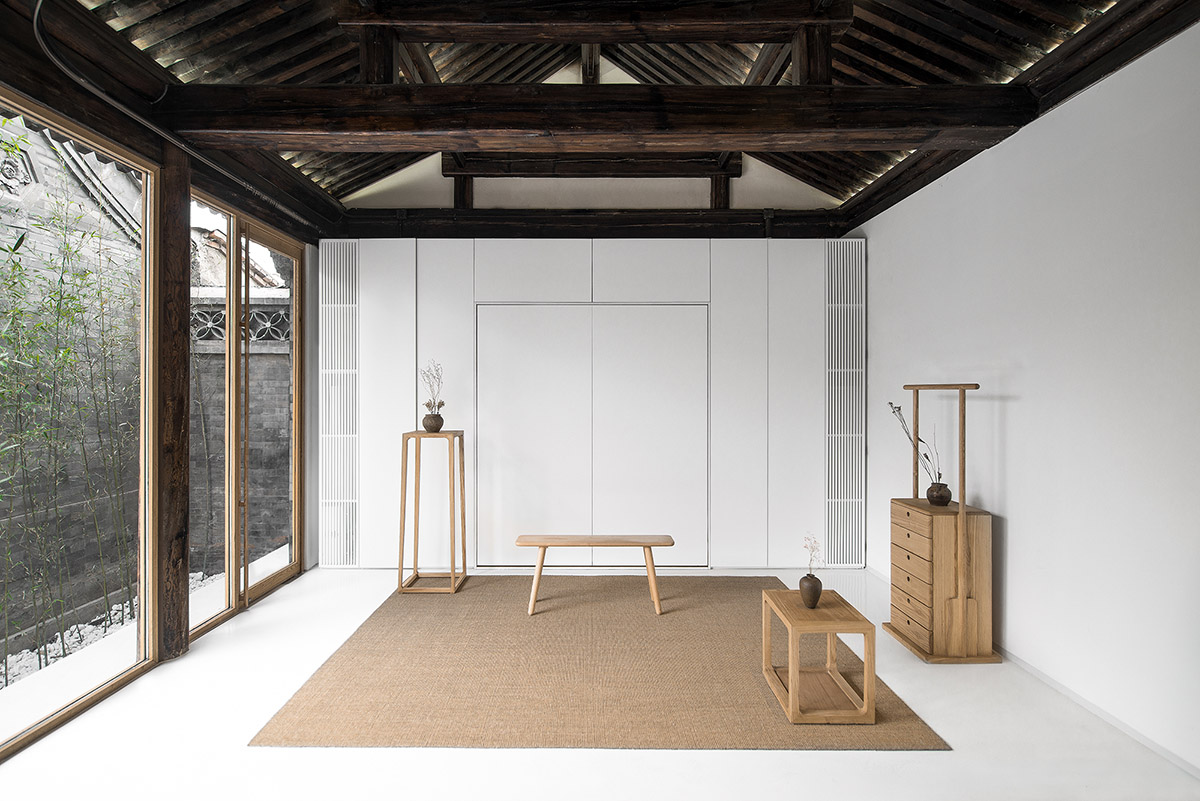
Main room (resting area mode)
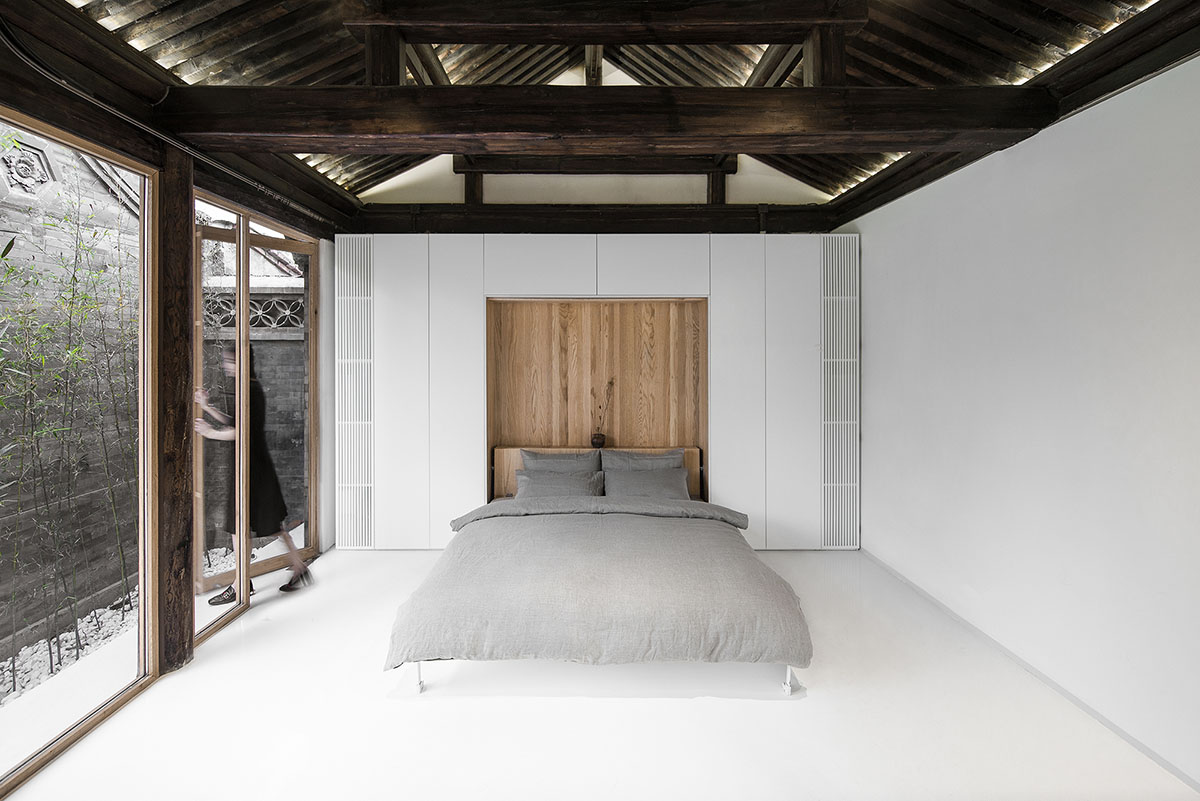
Main room (resting area mode)
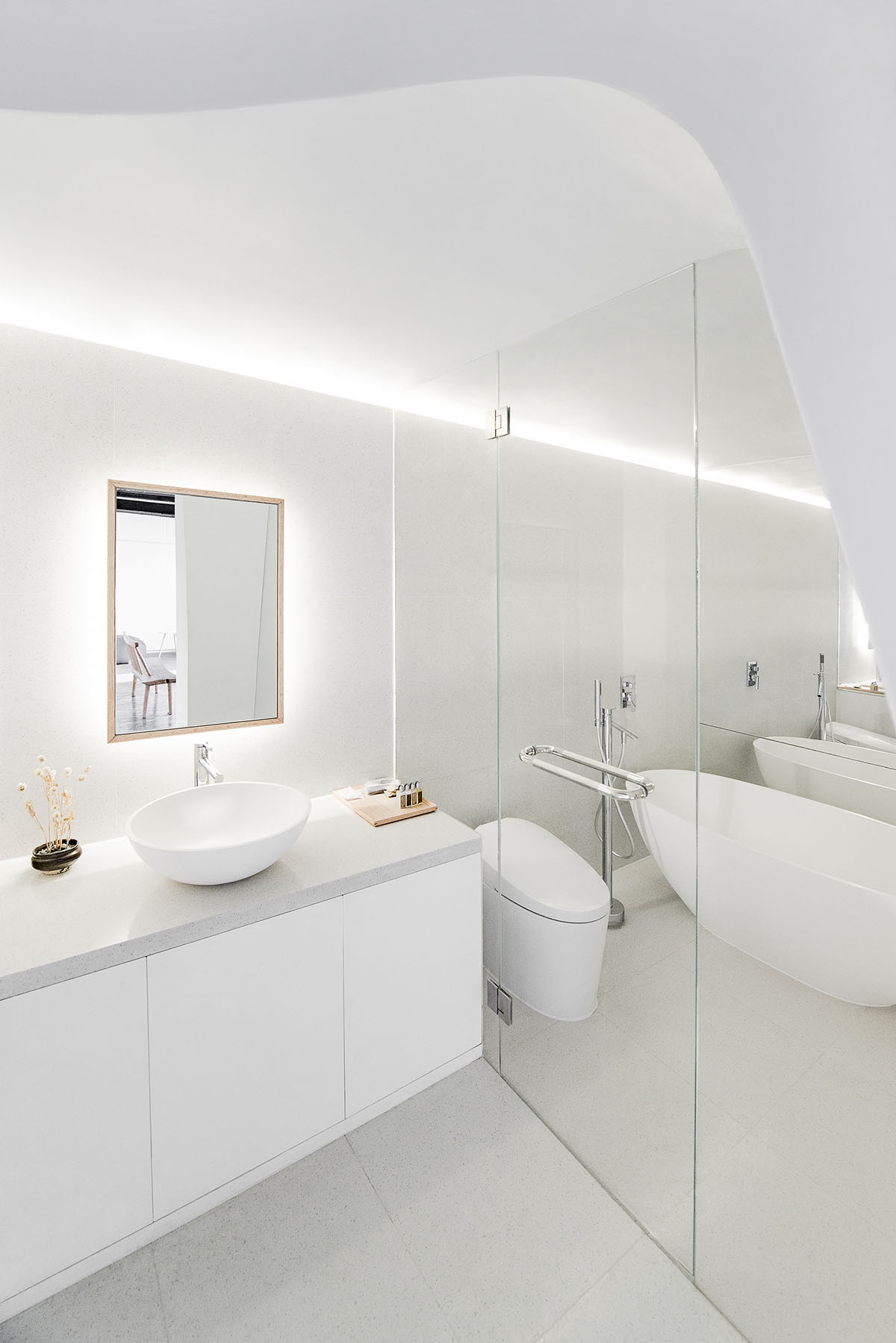
Bathroom
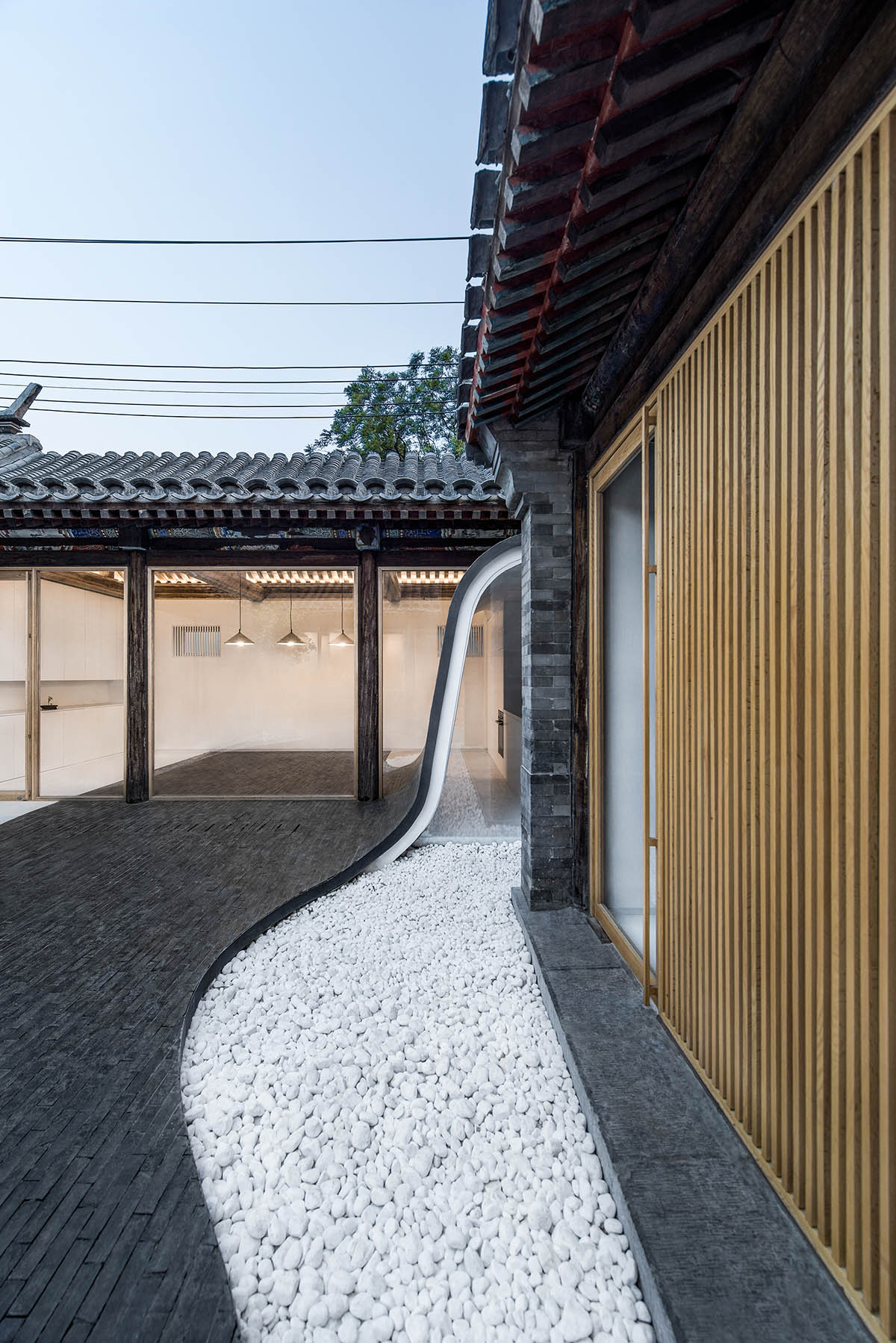
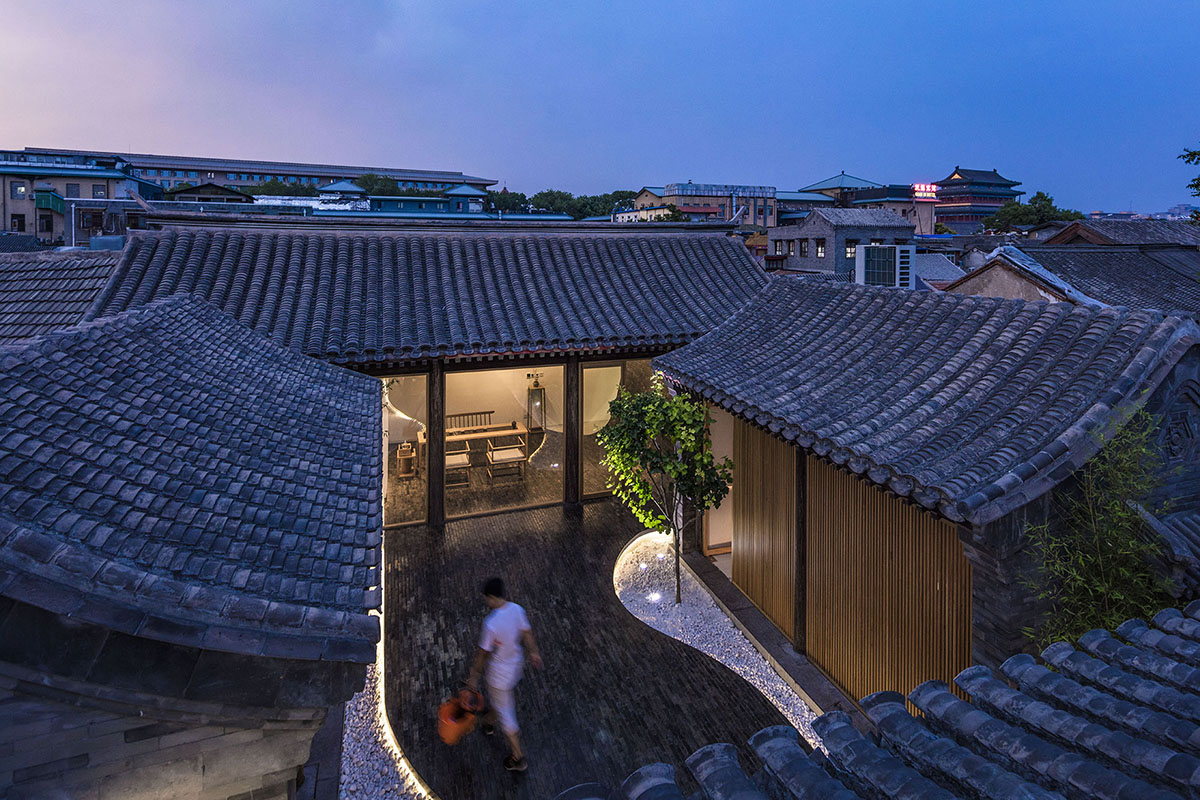
Nightview from the courtyard

Nightview from the courtyard
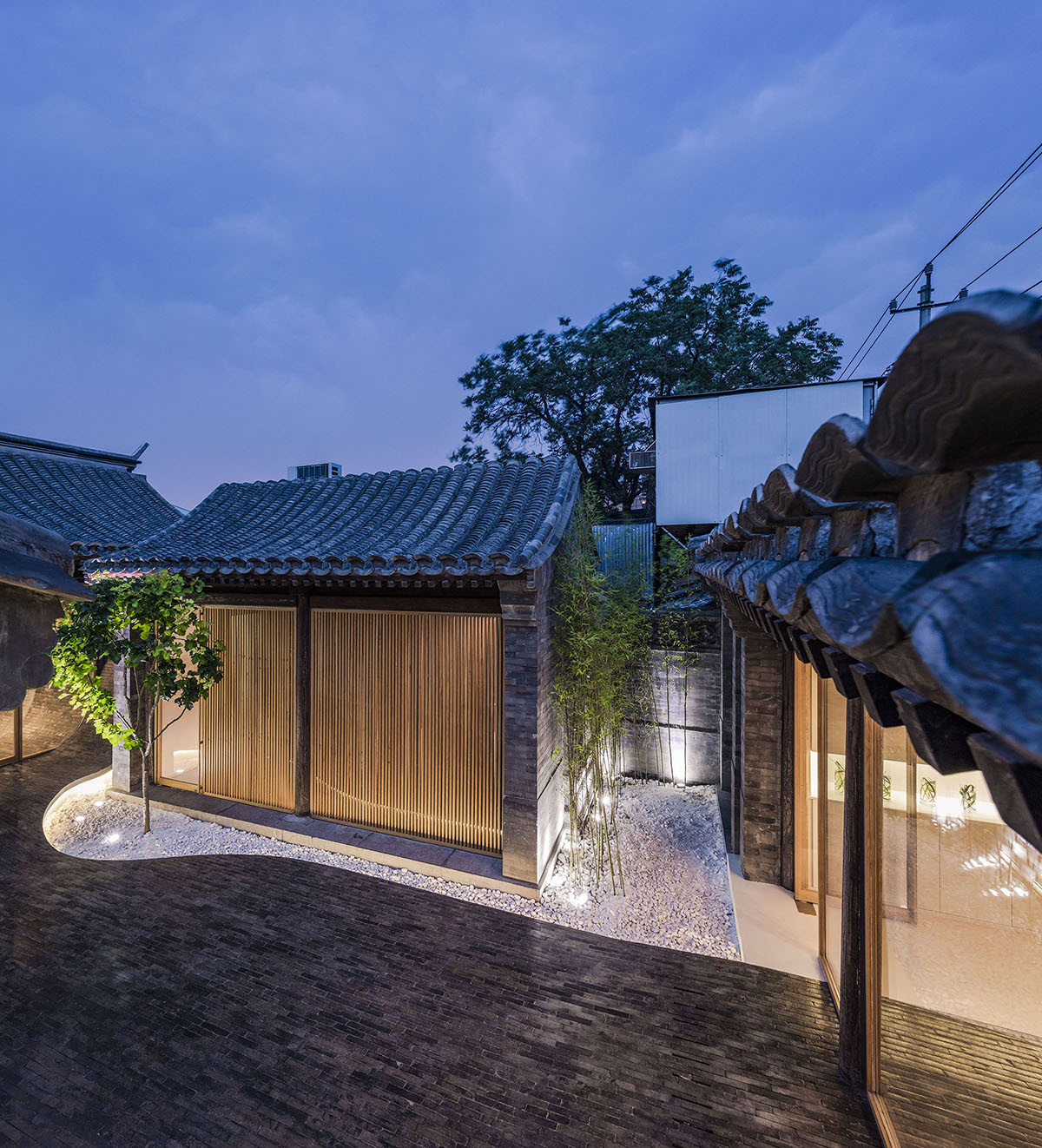
Nightview from the courtyard
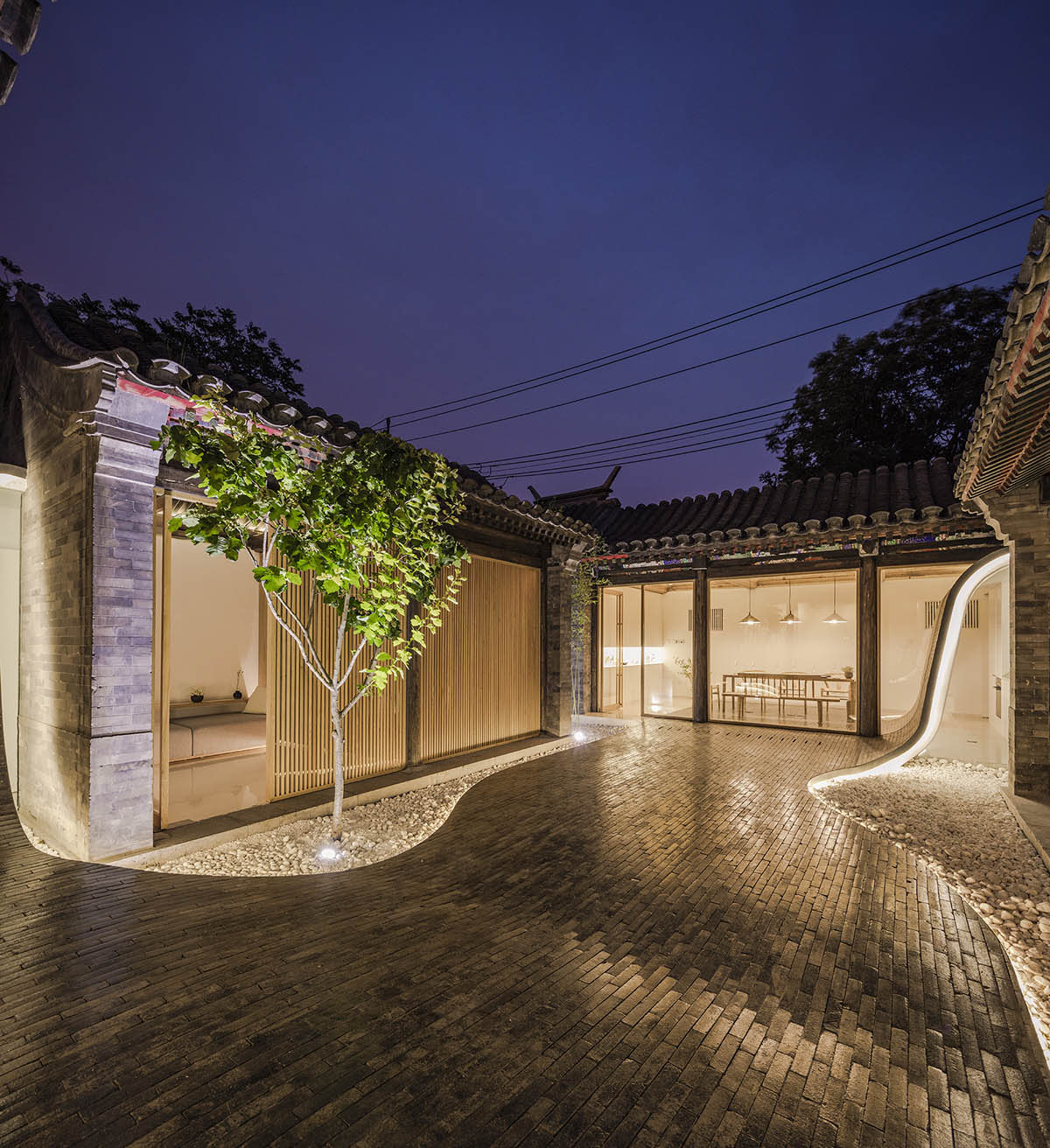
Nightview from the courtyard
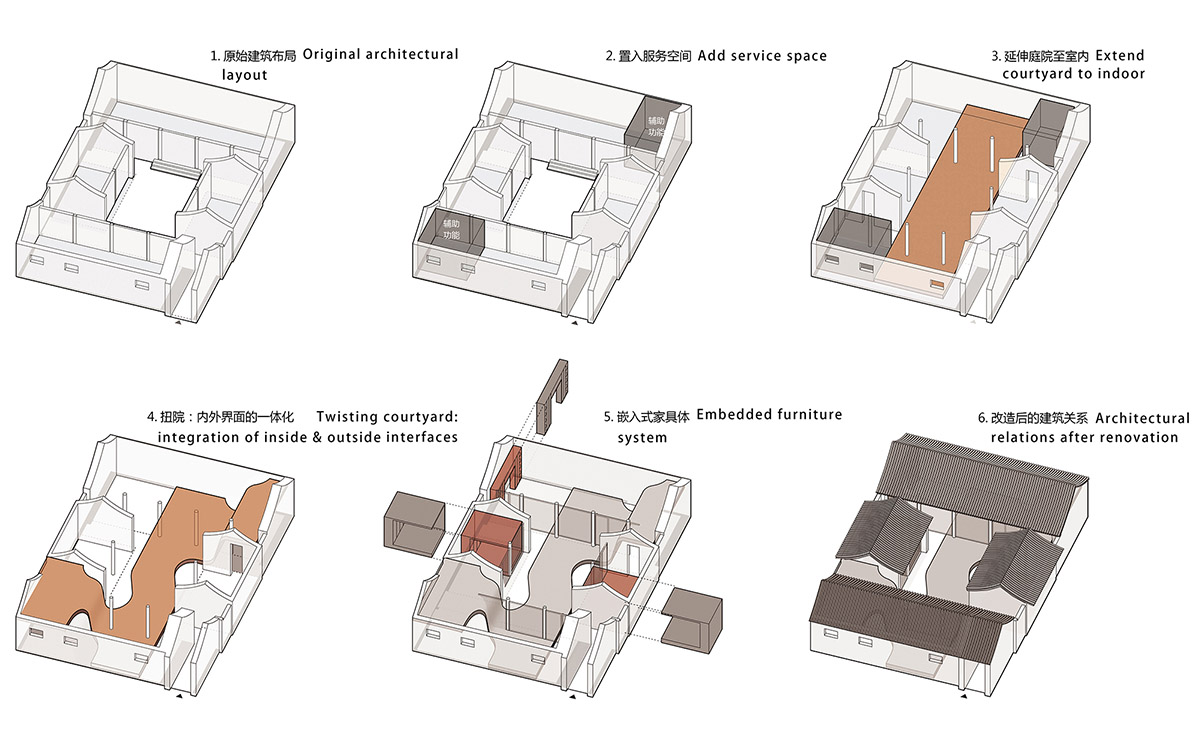
Analysis diagram
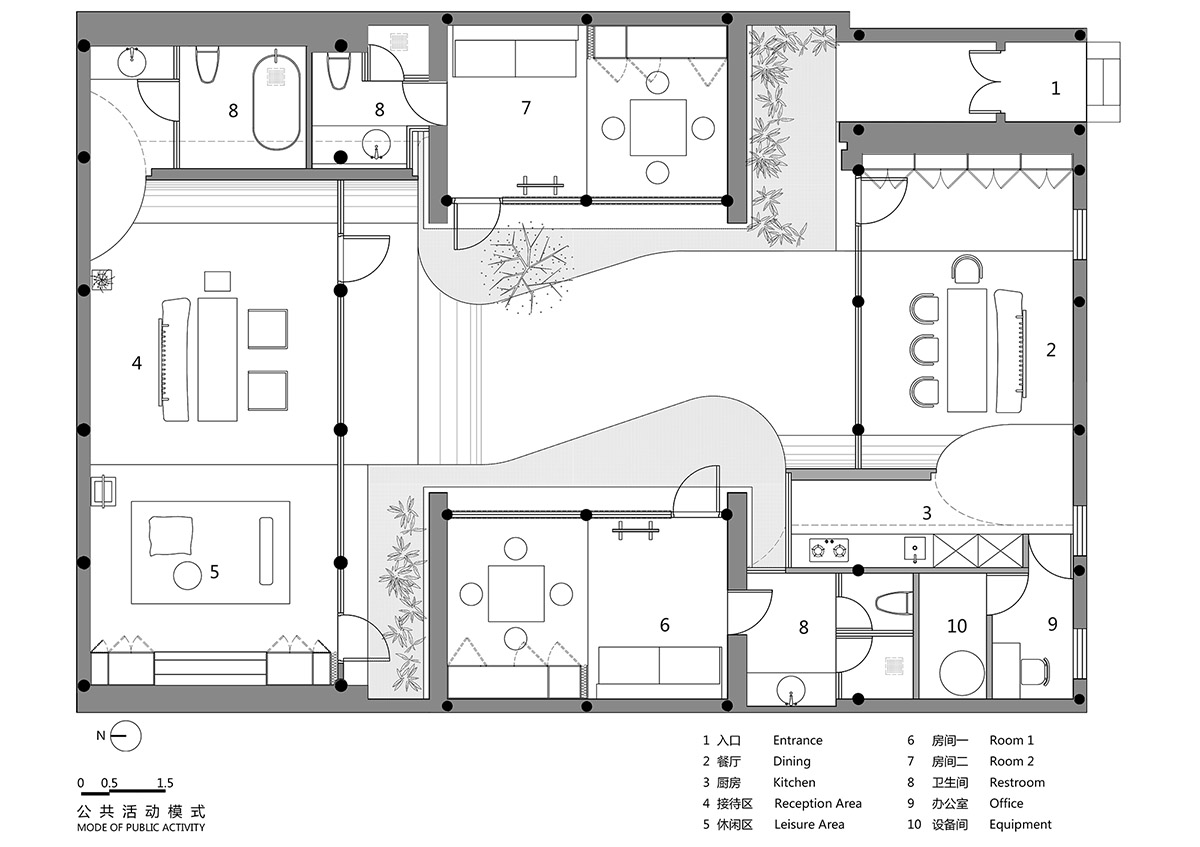
Plan of mode of public activity
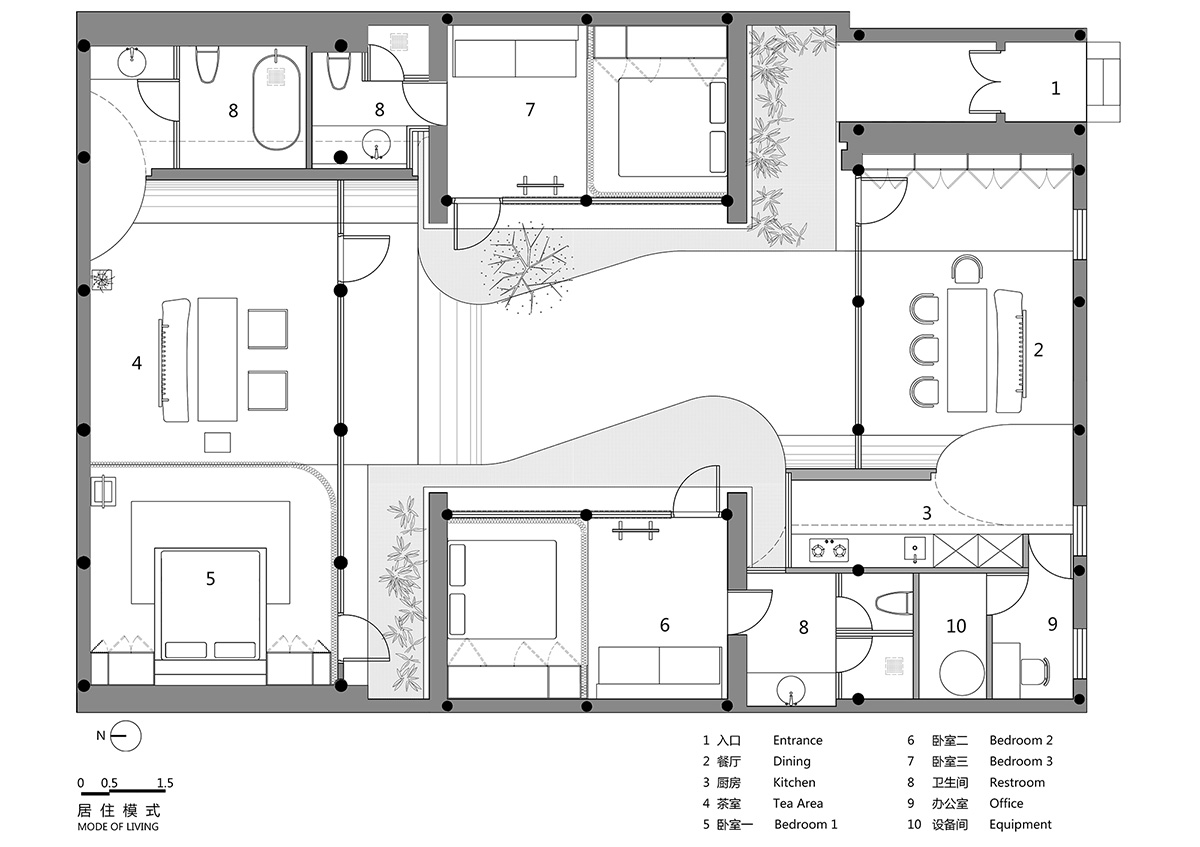
Plan of mode of public activity-2
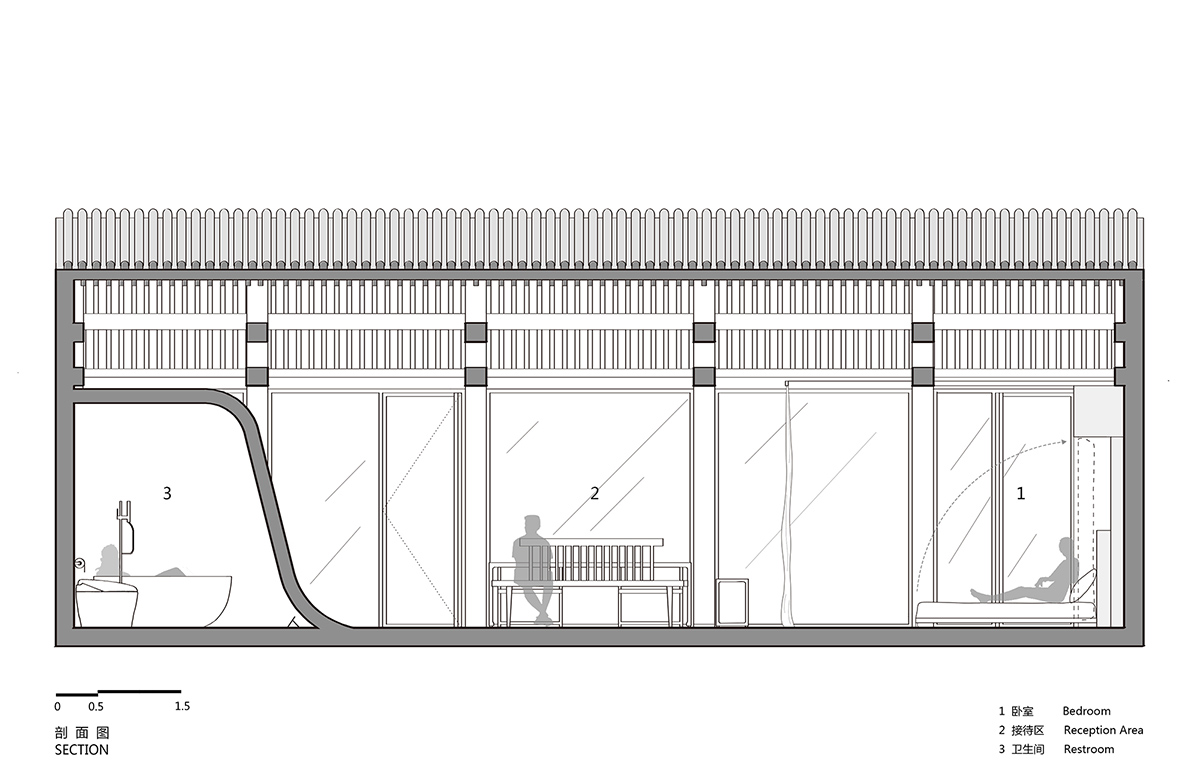
Section
Archstudio uses only gray brick and oak panels as main materials. Archstudio recently completely the Waterside Buddist Shrine in Hebei, China, functioning as a new mediation space for thinking and contemplation as well as a place satisfying the needs of daily life.
Besides that, the studio completed a small-scaled house called Haitang Villa - a three-storey townhouse located in a residential area in the eastern suburbs of Beijing - which uses bamboo elements to create semitransparent spaces.
Project facts
Architect: Archstudio
Location: Paizihutong, Beijing
Project type: Residence renovation
Site area: 225.4m2
Building area: 161.5 m2
Main material: gray brick, oak panels
Design time: 2016.06 - 2016.09
Construction time: 2016.10 - 2017.05
Design team: Han Wenqiang, Huang Tao
Furniture accessories: Song Guochao
All images © Wang Ning and Jin Weiqi
> via Archstudio
